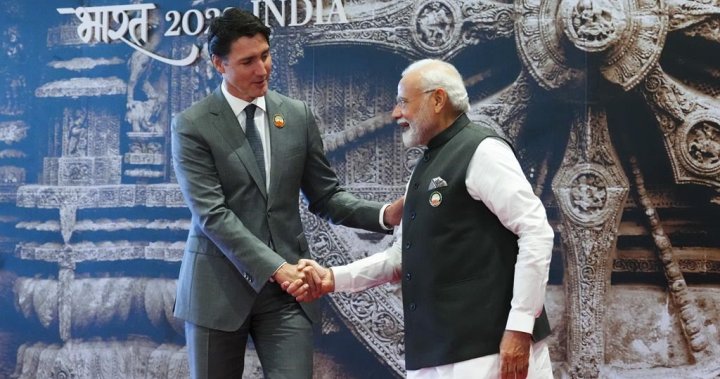Prime Minister Justin Trudeau testified that India rejected repeated opportunities to avoid a diplomatic crisis after intelligence linked it to the Hardeep Singh Nijjar murder in B.C. Instead of cooperating with Canada’s investigations into the role of its intelligence services in the assassination, India escalated the situation, attacking Canada rather than taking responsibility. Despite efforts to resolve the dispute and work together, India refused to look into the conduct of its security agencies and continued to deny the allegations. Trudeau detailed his attempts to resolve the issue with India, including informing Prime Minister Narendra Modi of the situation during the G20 summit in 2023.
Trudeau explained that in late July and early August, intelligence from Canada and possibly Five Eyes allies indicated India’s involvement in the Surrey, B.C. Sikh temple leader’s murder. Canada first reached out to Indian officials in August to inform them of the findings and attempt to work together in a responsible manner. Despite Canada’s efforts to cooperate and investigate together, India only wanted to know what evidence Canada had against them. Trudeau shared his concerns directly with Modi, emphasizing the importance of freedom of speech and working together on concerns related to terrorism or incitement to hate.
Following the G20 summit, Trudeau observed that India continued its approach of attacking Canada instead of addressing the issue, prompting him to go public with the allegations in late September. This decision was made to ensure public safety in Canada and to prevent individuals from taking matters into their own hands. The Indian government responded to the statement with further attacks and denials, expelling Canadian diplomats in an act of reprisal. Despite Canada’s attempts to secure India’s cooperation, India declined and accused Trudeau of playing politics, leading to further revelations of India’s involvement in violent crime in Canada.
Regarding the Indian government’s involvement in violent crime in Canada, it was uncovered that Indian agents based at the high commission in Ottawa and consulates in Vancouver and Toronto were involved in coercing Canadians into spying. Cash payments were used to recruit informants, and the gathered information was relayed back to India’s intelligence services to plan attacks on Modi’s opponents. Organized crime groups were contracted to carry out the attacks, targeting activists in the Khalistan movement. The police have evidence suggesting that the operation was approved by Amit Shah, Modi’s right hand man and India’s Home Minister.
Trudeau noted that the violence in Canada raised important questions about whether it was authorized and directed by responsible members of the Indian government. Canadian investigators, however, were somewhat removed from uncovering the internal machinations of the Indian government. Therefore, Canada repeatedly asked India to assist in determining whether the violence was orchestrated by rogue elements or part of a systematic endeavor by the government. Canada has been urging India to take the allegations seriously and conduct its investigations to determine how these violations of Canadian sovereignty occurred. Despite India’s refusal to cooperate, Canada continues to seek answers and address the situation diplomatically.


